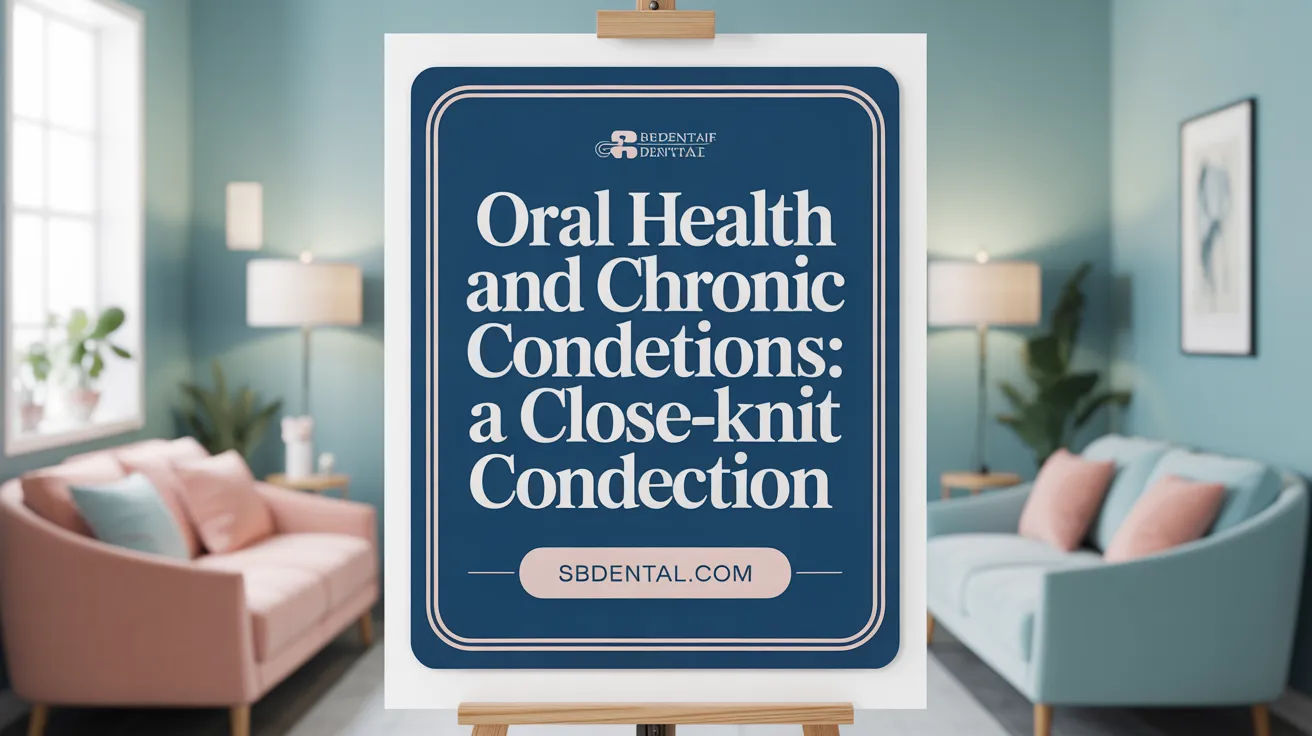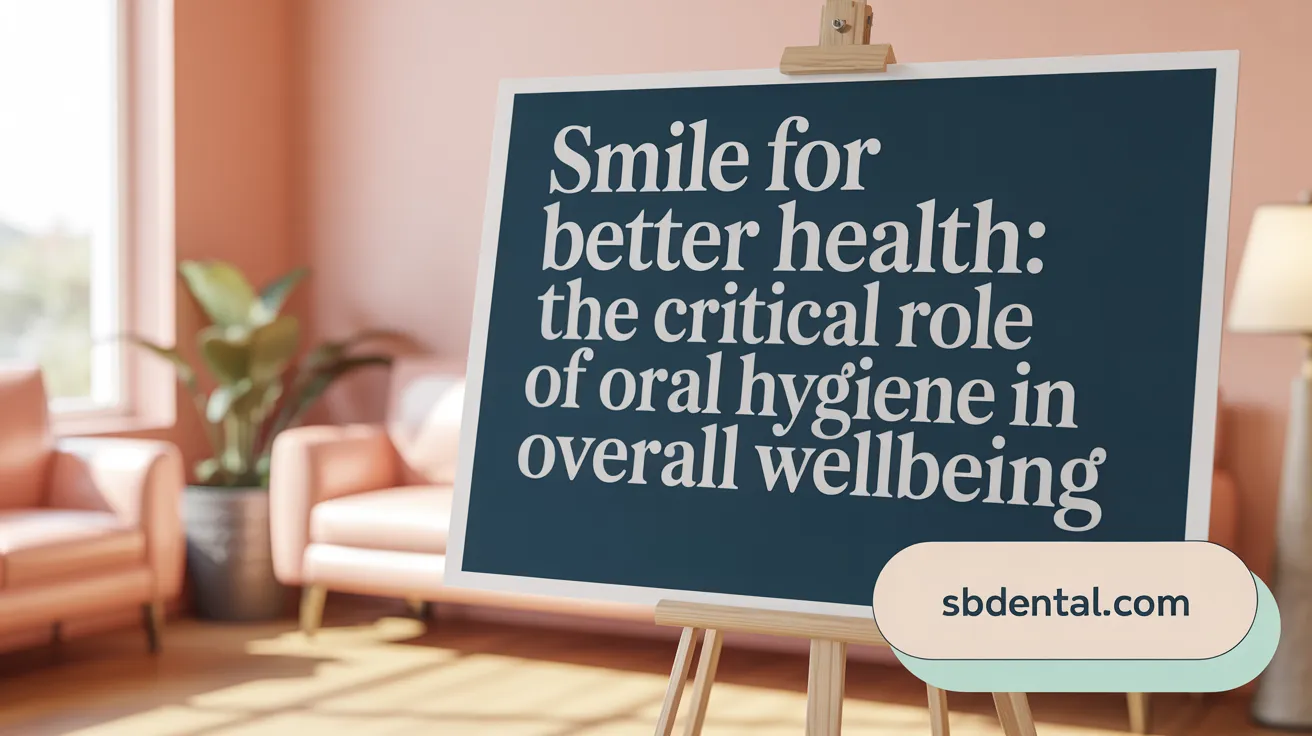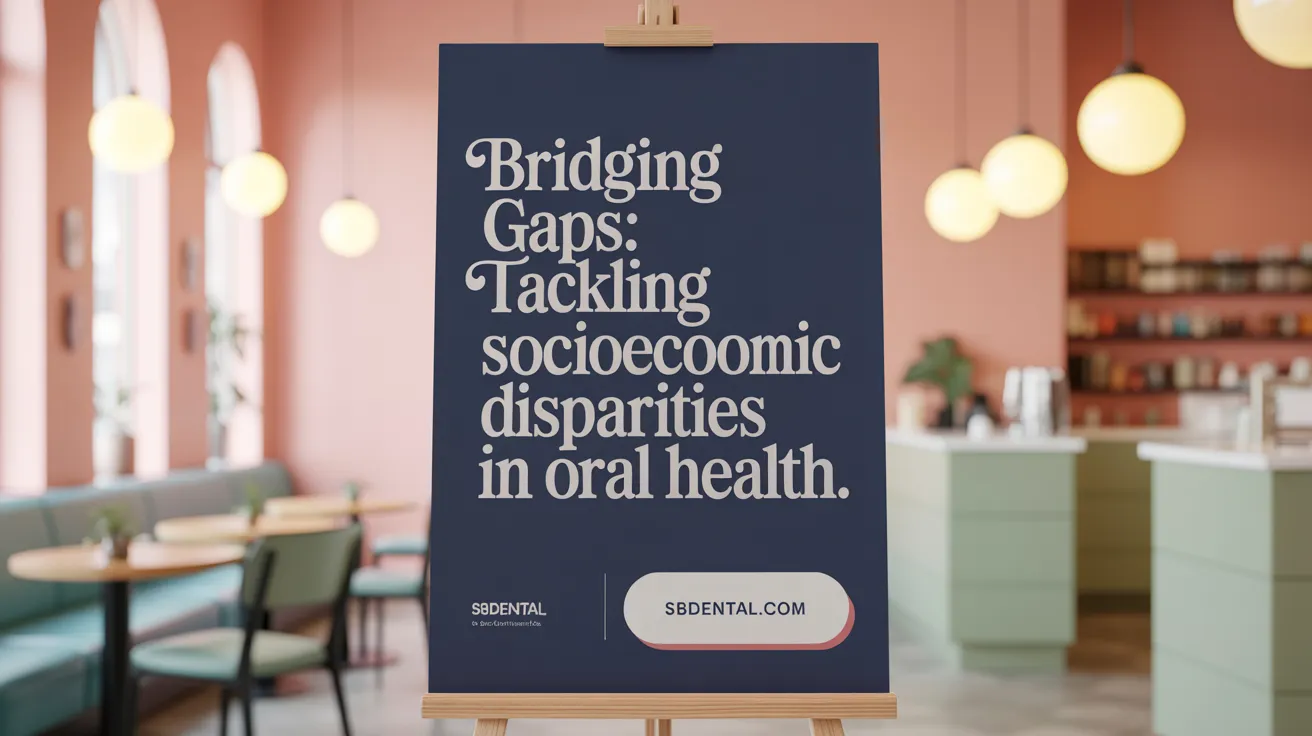Understanding the Crucial Link Between Oral and Overall Health
Oral health is often perceived simply as a matter of clean teeth and fresh breath. However, emerging research and clinical findings reveal that the health of our mouth, gums, and teeth is intricately connected with our entire body's wellbeing. This article delves into the multifaceted relationship between oral health and overall health, highlighting how maintaining good oral hygiene not only preserves a confident smile but also plays a vital role in preventing chronic diseases, improving mental and social wellbeing, and reducing health disparities. We also explore effective strategies and public health efforts aimed at integrating oral health into general health care to enhance quality of life for individuals and communities alike.
The Interconnection Between Oral Health and Systemic Wellbeing

What is the relationship between oral health and overall health?
Oral health is deeply linked to general health, influencing and being influenced by various systemic conditions. Poor oral hygiene, gum disease, and infections like periodontitis are associated with serious health issues such as cardiovascular disease, diabetes, and certain cancers. Research shows that inflammation caused by oral bacteria can enter the bloodstream, affecting other organs and systems. For example, inflammation from gum disease can exacerbate diabetes control and increase the risk of heart disease.
Maintaining healthy teeth and gums supports not only oral functions like speaking and eating but also plays a vital role in overall wellbeing. Regular dental care, good nutrition, and lifestyle choices are essential to prevent oral and systemic diseases, highlighting the importance of integrated healthcare approaches.
How do oral diseases contribute to systemic conditions?
Oral infections can have far-reaching effects beyond the mouth. Bacteria from gum infections can enter the bloodstream, causing or worsening conditions such as endocarditis, an inner heart lining infection. Chronic inflammation in the mouth can trigger immune responses that affect other parts of the body, leading to diseases like cardiovascular ailments or complications in pregnancy like preterm birth.
Furthermore, certain periodontal pathogens have been linked to neurodegenerative diseases like Alzheimer’s disease. The inflammatory mediators produced during oral infections can promote systemic inflammation, which is a common pathway in many chronic diseases.
What are shared risk factors and inflammatory processes?
Shared risk factors such as smoking, poor diet, high sugar intake, and social disadvantages influence both oral and systemic health. For instance, tobacco use increases the risk for gum disease and lung infections like pneumonia.
Inflammation plays a crucial role in connecting oral health to overall health. Inflammatory mediators produced in the mouth can circulate throughout the body, contributing to inflammation elsewhere, which is a common feature in cardiovascular disease, diabetes, and arthritis.
Why is integrated healthcare important?
Addressing oral health within broader healthcare frameworks improves disease detection, prevention, and management. Collaboration among dental and medical professionals can identify early signs of systemic diseases during routine dental visits or screenings. Initiatives like combining dental assessments with primary healthcare and adopting innovations like teledentistry can reduce disparities and improve health outcomes.
By understanding the connection between oral and systemic health, healthcare providers can better tailor interventions that benefit overall wellbeing, prevent complications, and promote healthier communities.
| Aspect | Details | Additional Insights |
|---|---|---|
| Main link | Bacterial spread, inflammation | Heart disease, diabetes, cancers |
| Contributing factors | Smoking, diet, social factors | Disparities, social determinants |
| Key processes | Systemic inflammation | Chronic disease exacerbation |
| Strategies | Integrated care, public health policies | Community programs, tech innovations |
Impact of Oral Health on Chronic Diseases and Wellbeing

How does oral health impact various health conditions and overall wellbeing?
Oral health plays a crucial role in overall health and quality of life. Poor oral hygiene, untreated infections, and gum diseases like periodontitis are linked to a range of systemic conditions, including diabetes, cardiovascular disease, and respiratory illnesses.
Inflammation from gum disease can enter the bloodstream, contributing to arterial plaque buildup and increasing the risk of heart attacks and strokes. Additionally, bacteria from the mouth can reach the lungs, heightening the risk of pneumonia, especially in vulnerable groups.
In people with diabetes, gum disease can worsen blood sugar control, making management more difficult. Conversely, well-maintained oral health can help lower systemic inflammation, reducing complications and supporting better control of chronic diseases.
Oral health also influences mental and social wellbeing. Dental issues can lead to pain, embarrassment, and reduced confidence, impacting social interactions and employment opportunities. Moreover, disparities in access to care and social determinants can lead to higher burdens of oral disease among disadvantaged groups.
Addressing these challenges requires integrating dental services into primary healthcare, promoting early screening, and reducing social barriers. Public health strategies like community water fluoridation and dental sealants have proven effective in lowering disease burden.
In summary, maintaining good oral health is essential for preventing multiple chronic conditions, improving mental health, and ensuring social and economic stability. It underscores the importance of equitable access, preventive practices, and collaborative healthcare efforts to promote overall wellbeing.
Why Maintaining Good Oral Health is Vital for Wellbeing

Why is maintaining good oral health important for overall wellbeing?
Keeping your mouth healthy is more than just having a nice smile. It is fundamental to your overall health and quality of life. When you maintain good oral hygiene—brushing twice daily with fluoride toothpaste, flossing, and visiting the dentist regularly—you can prevent common dental problems like cavities and gum disease.
Infections and inflammation in the mouth are linked to more serious systemic health issues. For example, bacteria from gum infections can enter the bloodstream, increasing the risk of heart disease, endocarditis, and respiratory illnesses like pneumonia. This connection shows how oral health impacts other vital body functions.
Beyond physical health, oral health influences psychological and social wellbeing. A healthy, attractive smile boosts self-confidence and enables positive social interactions. Conversely, poor oral health can cause pain, social embarrassment, and even affect employment opportunities.
Social disadvantages can lead to higher rates of oral diseases among certain groups. Limited access to dental care, high costs, and geographic barriers create disparities that prevent many from receiving necessary preventive and restorative treatments. Addressing these social determinants is essential for ensuring equal health outcomes.
In sum, good oral health supports essential functions like speaking, eating, and smiling, while its systemic links can influence conditions such as diabetes, heart disease, and mental health. Protecting oral health through preventive practices and equitable access to care remains crucial for enhancing overall wellbeing.
Disease Prevention and Health Benefits of Good Oral Hygiene

What health benefits are associated with disease prevention through good oral hygiene?
Maintaining good oral hygiene is essential for overall health. By brushing twice daily with fluoride toothpaste, flossing regularly, and attending routine dental checkups, individuals can effectively control harmful bacteria in the mouth. This routine helps prevent common oral diseases such as cavities and gum disease.
However, the benefits extend beyond oral health. Proper oral care can reduce the risk of systemic infections, including endocarditis—an infection of the heart lining caused by bacteria entering the bloodstream from the mouth—and pneumonia, especially in vulnerable populations.
Research indicates that preventing periodontal disease is crucial because chronic inflammation in the gums is linked to worsening systemic conditions like diabetes and cardiovascular diseases. Without intervention, these invisible infections can elevate inflammation levels and complicate existing health issues.
Community health initiatives, such as water fluoridation and the application of dental sealants, play a significant role in widespread disease prevention. Fluoridated water helps strengthen teeth and significantly cuts down the incidence of cavities, while dental sealants serve as protective barriers, particularly for children, shielding them from decay.
Beyond health, good oral hygiene offers tangible social benefits. It diminishes healthcare costs by reducing the need for extensive dental treatments, minimizes missed days from school and work, and improves quality of life by promoting confidence and social participation.
In summary, practicing effective oral hygiene not only prevents local oral diseases but also supports systemic health, lowers healthcare expenses, and enhances overall wellbeing.
Social Determinants, Disparities, and Policy in Oral Health

What factors influence oral health, including social determinants and disparities?
Various factors shape oral health outcomes, including biological, behavioral, environmental, and social determinants. Social factors—such as socioeconomic status, education, racial and ethnic background, and income level—play a central role. These determinants influence access to dental care, health literacy, and the ability to maintain good oral hygiene practices.
Intermediary barriers like lack of transportation, food insecurity, unstable housing, and experiences of racial discrimination further limit access to necessary dental services. Systemic inequalities and discrimination are structural issues that foster these intermediary conditions, leading to disparities in oral health.
Populations experiencing social disadvantages often face higher burdens of oral diseases like cavities and gum disease. Addressing these social factors through policy reforms, targeted community outreach, and culturally competent healthcare practices is essential for achieving health equity and improving overall oral health outcomes.
| Social Determinant | Impact on Oral Health | Contributing Factors |
|---|---|---|
| Socioeconomic status | Limits access to care, influences oral health behaviors | Income, education, employment opportunities |
| Race/ethnicity | Higher prevalence of oral diseases among marginalized groups | Discrimination, inequities in healthcare access |
| Education | Affects health literacy, awareness of preventive practices | Exposure to oral health education |
| Location (urban/rural) | Affects availability of dental services | Geographic barriers, healthcare infrastructure |
What public health policies and research exist regarding oral health and its connection to general health?
Public health strategies focus on expanding access to preventive and restorative dental services, promoting water fluoridation, and integrating oral health into comprehensive health systems. Policies support community programs to reach vulnerable populations and incorporate oral health education into broader health initiatives.
Research highlights the importance of collaborative care models, like teledentistry, and innovative diagnostics such as saliva testing for non-invasive detection of medications and health conditions. International organizations like the WHO advocate for universal access to essential oral health services, emphasizing equity and sustainability.
Efforts aim to reduce disparities by addressing the social determinants of health and ensuring that policies are culturally sensitive and community-driven. These approaches are grounded in evidence, aiming to improve overall health, prevent disease, and lessen the global burden of oral conditions.
| Policy Area | Focuses | Examples of Initiatives |
|---|---|---|
| Preventive care | Reduce incidence of cavities and gum disease | Community water fluoridation, dental sealants |
| Access and equity | Improve availability of dental services | Mobile clinics, subsidized dental programs |
| Integration in healthcare | Promote cross-sector collaboration | Oral health screenings during medical checkups |
| Innovation and research | Support new diagnostic tools and telehealth | Salivary diagnostics, tele-dentistry platforms |
Understanding the complex factors influencing oral health and implementing comprehensive policies are crucial steps toward reducing disparities and ensuring that all populations can attain and maintain healthy mouths, ultimately supporting overall health and wellbeing.
Practical Strategies for Maintaining Optimal Oral Health

What are effective strategies and tips for improving and maintaining oral health?
Achieving good oral health requires consistent daily habits and regular professional care. Brushing teeth at least twice daily with fluoride toothpaste is fundamental. Use a soft-bristled toothbrush and place it at a 45-degree angle towards the gums to effectively remove plaque.
In addition to brushing, flossing daily helps clean the spaces between teeth where toothbrushes can't reach. Using interdental cleaners or dental picks can also be beneficial.
Regular dental visits are essential — typically every six months — to catch early signs of cavities, gum disease, or other oral issues. These visits allow for professional cleaning and early intervention, which can prevent more serious health problems.
Diet plays a significant role in oral health. Limiting sugary and acidic foods and drinks minimizes acid attacks that cause tooth decay. Eating a balanced diet rich in calcium and phosphorus supports the rebuilding and strengthening of tooth enamel.
Lifestyle choices impact oral health profoundly. Avoiding tobacco products and moderating alcohol intake help prevent gum disease and oral cancers. Drinking fluoridated water can protect teeth by strengthening enamel and reducing decay.
Using dental products with the ADA Seal of Acceptance ensures safety and effectiveness. Toothpaste containing fluoride, mouth rinses, and sealants are proven to prevent cavities and fortify oral tissues.
Emerging advancements such as teledentistry make it easier to access dental care. Virtual consultations, remote screenings, and digital health monitoring are expanding reach, especially for underserved populations.
Implementing these strategies consistently leads to healthier teeth, gums, and overall well-being, reducing long-term health costs and improving quality of life.
Bridging Oral Health and Overall Wellbeing: A Call to Action
The evidence is clear that oral health is far more than just teeth and gums; it is a fundamental component of our overall health and quality of life. By understanding the complex links between oral diseases and systemic conditions, recognizing the social factors that influence health disparities, and applying effective prevention and care strategies, individuals and health systems can significantly enhance wellbeing and reduce the burden of disease. Integrating oral health into primary healthcare, investing in public health initiatives, and addressing inequalities will be essential steps towards healthier communities. Ultimately, nurturing good oral health is a vital investment in long-term physical, mental, and social wellness for all people.
References
- Oral health: A window to your overall health
- Effect of Oral Health on the Community, Overall Well-Being ...
- Oral health
- The Connection Between Oral Health and Overall ...
- How Oral Health Affects Overall Health
- Why Is Oral Health Important? Here are 4 Reasons
- About Oral Health
- Why Dental Care is Important For Your Overall Health
